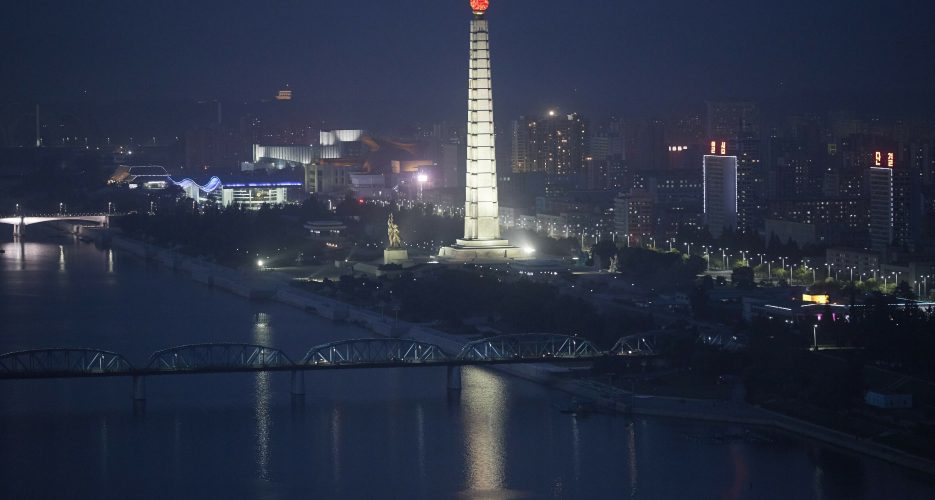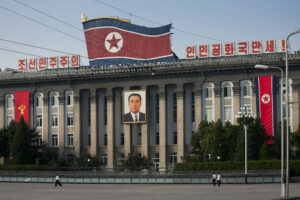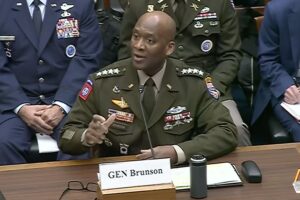It’s hard to imagine that Kim Jong-il didn’t grin when his train pulled into Beijing this May. The visit to China, his third in two years[1], took many in the West by surprise. Kim has always been a canny operator, and should serve as a living reminder to the West of the potency of Sun Tzu’s warning that “if you do not know your enemies you will be imperilled in every single battle”. Amongst Western analysts and their South Korean counterparts there exists a consistent –and complacent- tendency to maintain that North Korea is in a state of terminal decline.[2] Recent trends and events have provided ample evidence to suggest that this relatively simple and eminently cost-effective approach will not be as effective as was once assumed. North Korea is reversing its fortunes, rebuilding its economy and repairing relations. It looks set to become more stable than in any time in recent years.
Those who closely monitor Korean affairs will be aware of Pyongyang’s desire to change its fortunes. The Korean Central News Agency (KCNA) declared to the world that North Korea would embark upon an economic and social campaign that would, by 2012, transform it into a ‘great and prosperous nation’[3]. The symbolic significance of the year shouldn’t be underestimated; 2012 is the 100th anniversary of the regime’s founder, Kim Il Sung’s birth, the 70th birthday of its current leader, Kim Jong-il, and the 30th birthday of the heir-apparent, Kim Jong Un. In a state which should be seen less as a Communist stronghold, and more as a militant theocracy, the importance of these almost spiritual dates should not be underestimated; Pyongyang intends 2012 to be marked not just by military parades but a real reversal in fortunes.
It’s hard to imagine that Kim Jong-il didn’t grin when his train pulled into Beijing this May. The visit to China, his third in two years[1], took many in the West by surprise. Kim has always been a canny operator, and should serve as a living reminder to the West of the potency of Sun Tzu’s warning that “if you do not know your enemies you will be imperilled in every single battle”. Amongst Western analysts and their South Korean counterparts there exists a consistent –and complacent- tendency to maintain that North Korea is in a state of terminal decline.[2] Recent trends and events have provided ample evidence to suggest that this relatively simple and eminently cost-effective approach will not be as effective as was once assumed. North Korea is reversing its fortunes, rebuilding its economy and repairing relations. It looks set to become more stable than in any time in recent years.
Those who closely monitor Korean affairs will be aware of Pyongyang’s desire to change its fortunes. The Korean Central News Agency (KCNA) declared to the world that North Korea would embark upon an economic and social campaign that would, by 2012, transform it into a ‘great and prosperous nation’[3]. The symbolic significance of the year shouldn’t be underestimated; 2012 is the 100th anniversary of the regime’s founder, Kim Il Sung’s birth, the 70th birthday of its current leader, Kim Jong-il, and the 30th birthday of the heir-apparent, Kim Jong Un. In a state which should be seen less as a Communist stronghold, and more as a militant theocracy, the importance of these almost spiritual dates should not be underestimated; Pyongyang intends 2012 to be marked not just by military parades but a real reversal in fortunes.
Try unlimited access
Only $1 for four weeks
-
Unlimited access to all of NK News: reporting, investigations, analysis
-
Year-one discount if you continue past $1 trial period
-
The NK News Daily Update, an email newsletter to keep you in the loop
-
Searchable archive of all content, photo galleries, special columns
-
Contact NK News reporters with tips or requests for reporting
Get unlimited access to all NK News content, including original reporting, investigations, and analyses by our team of DPRK experts.
Subscribe
now
All major cards accepted. No commitments – you can cancel any time.











